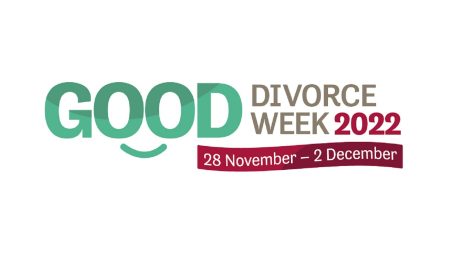Good Divorce Week is an initiative led by Resolution, a community of family justice professionals who work with families and individuals to resolve issues constructively. This year, the focus is on highlighting the crisis in the family court and raising awareness of how families can resolve their disputes away from the court, provided it is safe and appropriate to do so.
Partner Sophie Chapman and Knowledge Development Lawyer Carla Ditz look at the themes of Good Divorce Week 2022 and how early legal advice and access to information about process options is key to supporting couples going through relationship breakdown.
No-fault divorce
Good Divorce Week 2022 takes on a particular significance this year as we look at divorce through the lens of ‘no-fault divorce’, which came into force on 6 April 2022 following the enactment of the Divorce, Dissolution and Separation Act 2020.
The Act represents a major change in the law relating to divorce, as an application for divorce only requires the applicant(s) to confirm the marriage has irretrievably broken down. This is the sole ground for divorce, and a statement to this effect is conclusive evidence the marriage has ended. It is no longer a requirement to prove irretrievable breakdown by specifying one of the five facts (adultery, unreasonable behaviour, two years separation with consent, five years separation or desertion). This is something that before 6 April 2022 made it difficult for couples to commence divorce proceedings without blaming one spouse for the breakdown of the marriage. This was felt the most in divorce petitions based on unreasonable behaviour, where particulars of the other party’s behaviour had to be set out and put before a judge. The result was additional stress and upset at an already emotionally challenging time.
The law did not accommodate the situation, for example, where the couple had mutually agreed to divorce unless the couple waited patiently for two years to pass. The introduction of no-fault divorce acknowledges an individual’s or a couple’s autonomy (by virtue of the joint application for divorce) and right to determine for themselves when the relationship has come to an end. The new law also modernises the process and terminology used. All in all, it represents a sensible and welcome way forward.
What are the alternatives to court when looking to resolve the finances or children matters?
While Good Divorce Week encourages us to reflect on the divorce process, it is equally important to raise awareness of how couples can resolve their disputes away from the court. Indeed, many family disputes are far better placed to be dealt with outside the court arena, particularly when disputes concern children.
The divorce process is now straightforward unless a spouse disputes the divorce, which can only be done in limited circumstances. It is the matters ancillary to divorce and relationship breakdown, ie financial and children matters, where there are options for parties who wish to resolve issues away from court.
The need to raise awareness of how families can resolve their disputes is partly due to the crisis in our family courts, namely the huge backlog of cases and insufficient resourcing.
All too often, issuing a court application is seen by many as the only option to resolve family disputes. The result is a heavy burden on the court system and significant delays for those involved in court proceedings and, importantly, those who need it for resolution or protection. The situation has reached breaking point. This sentiment was echoed by the President of the Family Division, Sir Andrew McFarlane, in a recent speech entitled ‘When families fall apart, do they fall too easily into court?’ This speech stressed that for the majority of cases, court should be seen as a last resort for families. It is the communication of this message that represents a challenge.
In the meantime, court delays put immeasurable pressure on families who await a resolution. Those who have access to information about alternatives to court, such as private judging and arbitration, and the financial resources to privately fund them, can resolve matters more quickly. This can enable separated families to focus on the future.
The MOJ’s Family Mediation Voucher Scheme has assisted many couples who might not otherwise have turned to mediation to resolve their disputes. Public funding at this level (and more) will ease some of the pressure on the court system. Sir Andrew McFarlane acknowledged in his recent speech that he is keen for there to be much greater provision of resources to support separating parents to resolve issues without coming to the family court. However, this is certainly not something that will happen overnight.
Support and guidance on relationship breakdown
On relationship breakdown, having the benefit of good legal advice at the outset is important for several reasons. Central to this is how financial and children matters will be handled and exploring dispute resolution options best suited to each couple. Choosing the right process option can be pivotal. Not only can it lead to a swifter resolution of matters, but it can help preserve relationships going forwards, particularly co-parenting relationships.
Partner Sophie Chapman comments: “Good Divorce Week is especially significant this year as it is the first year in which couples have been able jointly to apply for a divorce and where there is no longer the need to blame either party for the breakdown of the marriage – the so-called ‘no-fault divorce’. While this represents a major, positive change for separating couples, it is hard to ignore the delays that plague our family courts, often prolonging this difficult time for so many families. Early legal advice is key to enabling couples to make well-informed decisions about their future, their rights and responsibilities and guiding them to the most appropriate process to resolve issues between them.”
For more information on Good Divorce Week 2022, please see: Resolution – Good Divorce Week 2022 – Ending the Family Court Crisis
You can learn more about the topics discussed in this article by listening and subscribing to the Stewarts Divorce and Family Podcast.
Our team has dedicated episodes on:
Subscribe on Spotify Subscribe on Apple
You can find further information regarding our expertise, experience and team on our Divorce and Family pages.
If you require assistance from our team, please contact us or alternatively request a call back from one of our lawyers by submitting this form.
Subscribe – In order to receive our news straight to your inbox, subscribe here. Our newsletters are sent no more than once a month.








